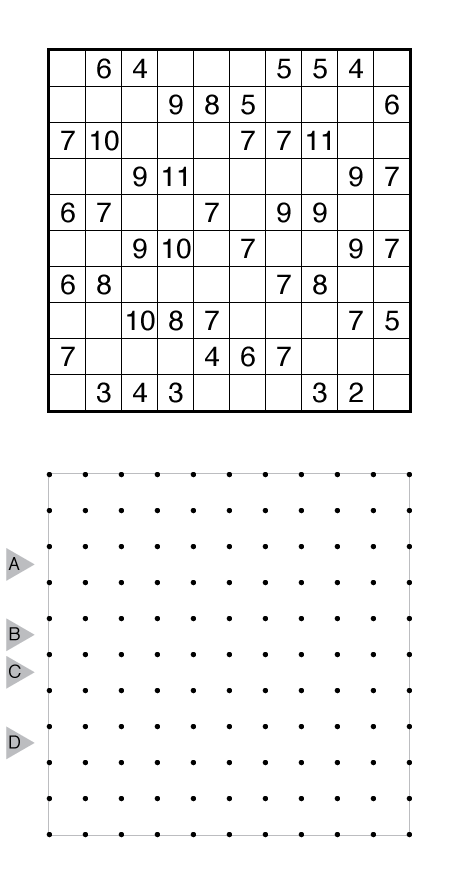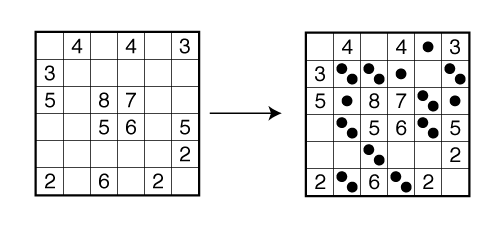Slithersweeper by John Bulten

or solve online (using our beta test of Penpa-Edit tools; use tab to alternate between edgex mode where left click+drag draws lines and right click marks X’s, a mine placement mode, and number entry mode.)
Theme: Cirrus Clouds
Author/Opus: This is the 6th puzzle from our contributing puzzlemaster John Bulten.
Rules: Place either 0, 1, or 2 mines into each empty cell so that each number represents the total count of mines in all neighboring cells, including diagonally adjacent cells. See also this example:

Also, all cells other than Minesweeper clues are Slitherlink clues. After solving the Minesweeper, convert these cells’ contents to numbers (use corresponding cells in additional grid), then draw a single, non-intersecting loop in the additional grid that only consists of horizontal and vertical segments between the dots, where the number inside each of these cells indicates how many of the four edges of that cell are part of the loop.
Answer String: Enter the length in cells of each of the internal loop segments from left to right for the marked rows, starting at the top. Separate each row’s entry with a comma.
Time Standards (highlight to view): Grandmaster = 8:00, Master = 9:30, Expert = 19:00
Solution: PDF
Note: Click here for other Double Minesweeper puzzles and here for other Slitherlink puzzles.

I tried to solve the slitherlink directly on the solved minesweeper grid to save the copy time, but I don’t know if I really saved time as it took me 26 minutes. But it was fun, and my grid now looks like a big mess with horrible colors ^^
I really like these two genres, but I don’t like to solve’em on computer, maybe that’s why it took me so much time too.
This was fun, but my one issue with this puzzle is that you really can (and probably should) just do them one after the other. In other words, there’s never a moment where making the mines into a valid Slitherlink resolves an ambiguity in the minesweeper. In this case, it was more of a relay than a hybrid.
This was my problem with yesterday’s puzzle too. It felt like a ~50 cell LITS puzzle, and then a ~50 cell nanro puzzle.
I prefer variations in which the logic of both types combines and forces you to go back and forth between the two puzzles’ logic.
32:01.Good logical puzzle
I really enjoyed this relay. Both parts were satisfying.
I commented on yesterday’s puzzle that I would have preferred more interaction between the two puzzle styles, but here I didn’t expect any. That’s likely due to the presentation on the separate grids and the rules making the relay nature quite clear (“after solving the Minesweeper”).
Thanks again for the puzzles this week, John.
I stalled for ages when I got to the slitherlink on this one… Then I realised my mistake,,, I’d only translated the non-zero clues from the minesweeper… oops! 🙂
– Neelix
My son invented the name Slithersweeper for a similar relay in “Art of Puzzles 2”. I like to solve them on the same grid myself but I think solvers will appreciate separating them this week. Both relays and back-and-forth (rockers?) should be featured regularly, and I hope these puzzles as a group struck a harmonious balance.
21:21
I’d never thought that puzzles can be combined in these ways.
Great job guys 😀